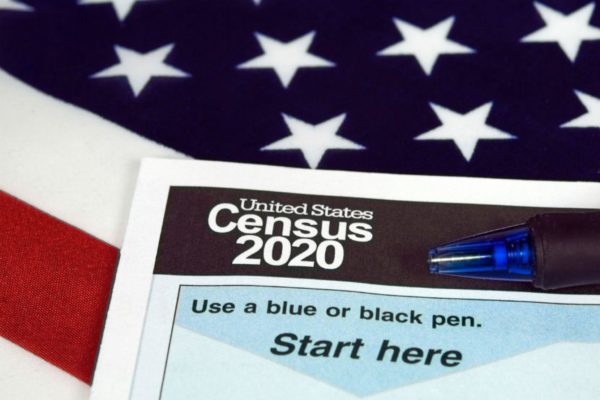Texas Republican leaders’ embrace of the Trump administration’s efforts to add a citizenship question to the U.S. census in 2020 flies in the face of practical considerations such as protecting federal funds vital to the state budget and avoiding a reduction in Texas’ congressional representation. Why? Because the attitudes of Texas Republican voters on issues of immigration are taking political precedence over the best interests of the state.
Texas polling data shows a negative network of attitudes toward both legal and illegal immigrants among many GOP voters. This creates a significant obstacle to persuading Republican voters to consider the possible negative repercussion of changing the census form. Any Republican leader who might publicly oppose the census order fears angering these voters — and inciting any primary challengers who are more willing to cater to these Republican ideals.
Large majorities of Texas Republicans have regularly expressed a lack of tolerance toward undocumented immigrants living in the United States. In the February 2018 University of Texas/Texas Tribune Poll, 70 percent of Republican voters supported the proposition that all undocumented immigrants should be removed from the country immediately — a result in line with responses to many previous UT/TT polls.
The effects of these attitudes already resonate in the political process here in Texas. The Republican majority in the most recent Texas Legislature passed an anti-sanctuary-city law that required law enforcement agencies to cooperate with federal immigration authorities, and barred local authorities from prohibiting officers’ questioning of a person’s immigration status when the person is legally detained.
The state’s leadership was playing in tune with their political base: In October 2017 UT/TT polling, 88 percent of Republicans supported requiring local law enforcement officials to cooperate with federal immigration authorities, and 69 percent said that officers should always be able to question a person’s immigration status.
The poll also explored Texans’ views of legal immigrants and found only a small degree of difference between Republicans’ disapproval of legal and illegal immigration. In the February 2018 UT/Texas Tribune Poll, 62 percent of Republicans expressed the opinion that the United States allows too many people to immigrate here legally, and 49 percent disagreed with the statement that “newcomers from other countries enrich Texas with their hard work and values.”
GOP voters’ reservations about the role of immigrants extends to other areas, such as birthright citizenship. Although the debate about birthright citizenship as guaranteed by the 14th Amendment of the U.S. Constitution has, for now, receded from the public agenda, in November 2015 UT/TT polling, in the wake of proposals by candidate Trump as well as other Republicans to repeal birthright citizenship, 66 percent of Texas Republicans favored repealing this part of the 14th Amendment.
Were immigration competing with other priorities for the attention of Republican voters, there might be potential for state elected officials to redirect voters’ attention toward realistic concerns about defending the flow of federal funds available to the state for social spending, transportation and education. The grounds for the argument hide in plain sight. In the 2016 fiscal year, according to the comptroller’s office, federal funds comprised more than a third of state budget revenue at 35.5 percent.
However, immigration and border security routinely top the list of concerns cited by about half of Texas Republicans as the most important problems facing the state. No other issues come close to competing for Republican voters’ attention.
Given this array of attitudes among the voters who dominate both the selection of state Republican candidates and the selection of winners in the general election, these elected officials remain eternally vigilant in their efforts to remain on the right side of the electorate — and one another — on all things related to immigration.
The result is that they continue to channel the nativist impulses that flow through their base, whatever the policy consequences. In his press release claiming no small share of the credit for initiating this change, Sen. Ted Cruz declared, “A question on citizenship is a reasonable, common sense addition to the census.” In this case, reason and common sense are clearly being defined in narrow, if recognizable, terms.
Jim Henson is the director of the Texas Politics Project at The University of Texas at Austin. @jamesrhenson
Joshua Blank is manager of polling and research of the Texas Politics Project at The University of Texas at Austin. @joshuamblank
A version of this op-ed appeared in the Waco Tribune Herald, Valley Morning Star, and the McAllen Monitor.
To view more op-eds from Texas Perspectives, click here.
Like us on Facebook.




